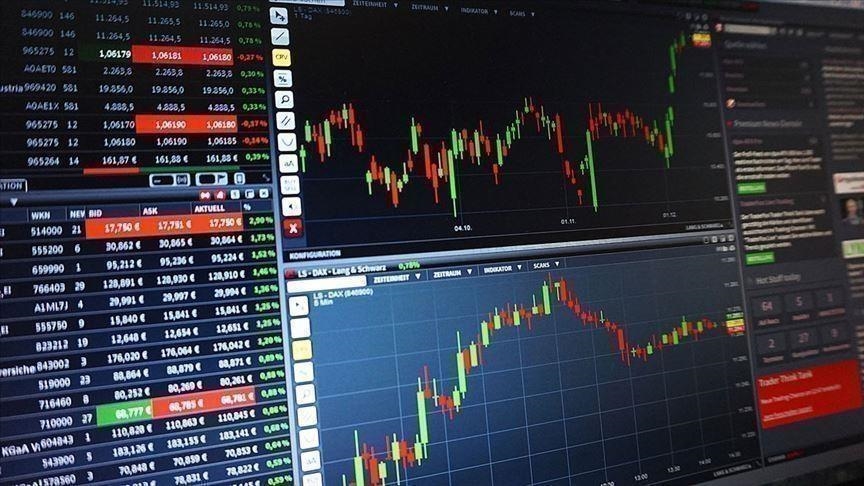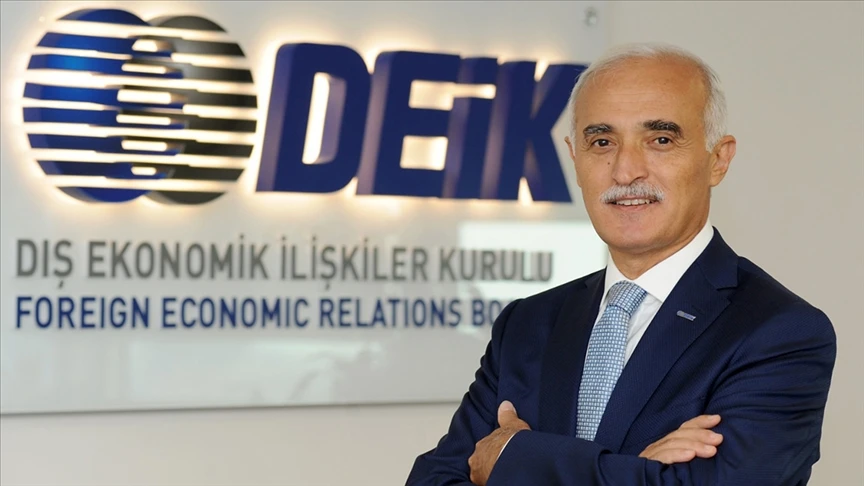Nervous Turkey holds its breath
You can buy a half decent cup of coffee at Lina’s Cafe for just under £2. Here, there are smart wicker chairs, pine tables, and shrimp and avocado top the blackboard menu thick with descriptions of ‘Les Sandwiches’. Downstairs a mirror advertises Twining’s teas with a lacy engraving of an 18th-century sailboat. Dark hardwood doors with polished brass handles lead to the lavatories.
In the magazine racks Jennifer Lopez’s scantily clad form is visible on the cover of Cosmopolitan while American pop dribbles out of wall-mounted speakers. Lina’s could be a vaguely upmarket cafe in Edinburgh, Rome or Lisbon. But the invitations to great sex and better bosoms in the glossy mags are in Turkish and Lina’s is in fact a long way from Europe’s sophisticated capitals.
How far and for how long will be decided later when the leaders of the European Union meet in Copenhagen on Thursday; if it’s possible for a country to hold its breath, that’s what Turkey will be doing over the next few days.
The EU’s leaders will be deciding on an issue that was set out in the starkest terms by former French President Valéry Giscard d’Estaing: can Turkey be part of a wider Europe, can Turkey be European or is it something else?
It is a question crucial to the prize which Turkey’s leaders have been pursuing since the 1960s – membership of the EU. It is a question that, for the Turks, feels tantalisingly near. Former enemies like Greece, doubtfuls like Britain and even recalcitrants like France and Germany are suddenly closer than ever to opening the EU door to the Islamic neighbour that has been knocking on it for more than 40 years.
It is a turnaround for Turkey, which has sat sullenly on the edge of Europe, often complaining about European demands with more vigour than has gone into implementing the reforms that would bring it closer to membership.
This year has been different: over the summer the death penalty was abolished and many restrictions on Kurdish broadcasting and education lifted; a further reform package has been assembled with impressive speed by the new government and sent to parliament. Turkey has bitten the bullet to implement many of the human rights reforms Europe has insisted on.
But the question still remains, although unmentioned in public; the head of Europe’s Constitutional Convention, Giscard, has declared the politically undeclarable. Turkey, he said bluntly, is not Europe. Most of its land mass is not part of the continent, it should not be allowed to join the EU and, if it did, it would mean the end of the union.
With a fast growing population of 67 million Turkey would join the EU as the second largest member; by 2020 it would be the largest. Human rights still don’t compare with Western European standards and the military has an ‘oversight’ role in the country’s government that leaves Western observers shaking their heads in disbelief.
In Lina’s there is a surprising amount of sympathy with Giscard’s comments. Flicking through the magazines, two students pull on Marlboro Lights. Ramadan ended on Wednesday followed by a two-day holiday, so shopping is muted, the Benetton and Reebok shops are shut, McDonald’s and Burger King have stopped vying for business.
Both women are keen for Turkey to join the EU but have their doubts about its chances. ‘Turkey is a Muslim country and everyone knows it,’ said Verda Aner, a 22-year-old media and communications student.
‘When you look at the EU all the countries over there are Christian. As a Muslim country, Turkey would change the purpose of the EU.’
It is not the grand clash of civilisations that disturbs, said Verda, it is that being Muslim means you embrace change more slowly, that you are culturally different. ‘Muslims have a lot of traditions; they are not leaving their traditions, they are keeping them. A lot of my Muslim friends, despite being highly educated, think that they are not suitable for the EU.
‘The reason is that they are Muslim, they have their own culture, their own lifestyle, and it is too hard to change it.’
Istanbul, said Verda, is different – not really Turkey at all, the cosmopolitan city has a history of European civilisation and intermingling of cultures. All the same, she says, it is not Europe either. ‘It’s like the combination of East and West together – one day you feel you are very European, very modern, the next you wake up and find out that you are from the Middle East.’
Verda’s friend Giselle Levi, also 22, understands the division between Europe and Turkey better than many. Her father is Dutch and lives in the Netherlands and she regularly goes back and forth. As soon as she gets out of Ataturk International Airport in Istanbul, she knows she has left Europe.
‘Everything is different, all the people change, their look is totally different, the air is different, the traffic, the pollution. It’s difficult to explain, but everything is in order in Europe; you travel by bus, by tram, by metro, it works. Here you get on a bus, it’s so crowded, it smells so bad,’ she said.
Verda added: ‘When I’m in Europe I always put a seatbelt on, I always buckle up. Then when I come back to Turkey something happens, I don’t know what, I forget the seatbelt. I’m being Turkish!’
If a passenger wears a seatbelt in Turkey it is taken as a personal insult by many drivers, despite their manic weaving through the crazy traffic. Behind Verda’s observation is that it it is the small differences as much as the large that accumulate to make Turkey seem so different from the EU.
A short cab ride from the swish shopping district of Nisantisi, where Lina’s does business, is Fatih, a fundamentalist stronghold where during Ramadan the restaurants are deserted and smokers desist. Here is where jihad was declared against the nascent Turkish Republic.
Tradition is strong here, supporting a poor population and binding a community. There is a palpable sense of relief that Ramadan has ended. On the first day of the holiday sweets and chocolates are given out to friends, children and strangers as if to mark the freedom to eat at any time of the day.
Near the Fatih mosque most shops are closed, but a food store is open, the pavement outside it groaning with trays of boiled sweets, chocolates, sugared almonds, nuts, figs and dates.
In the cafes here there is no filter coffee. Tea is served out in small tulip-shaped glasses, drunk sweet to the accompaniment of many cigarettes. Men – no women – play cards or a kind of dominoes on tables covered in green baize, while above the fug of cigarette smoke a television tinkles Arabesque.
Murat Gogulter sits with a group of friends. Aged 24 and unemployed, he describes Turkey as the most enlightened of any Muslim country but is not optimistic about joining Europe.
‘Here there’s torture, unemployment; in the East there are no roads, villages without power, there’s no human rights. The politicians are European all right, they spend half their time there and their children are educated there.’ Murat sounded bitter but smiled as he talked, as if simply explaining a fact of life.
His friend Under Fogan, a 23-year-old waiter, flips his worry beads back and forth over his hand. ‘What human rights?’ he says. ‘They’ve been changed only for the rich and they’ve been changed only on paper. We don’t have any human rights.’
The young in the cafe are more negative than the old; they emphasise Turkey’s Islamic status more; they talk more of Turkey going it alone, of becoming self-sufficient or leading a Muslim Union. Yasar Ersin, a 65-year-old retired civil servant, doesn’t think the differences between Turkey and the EU are that great.
‘Compared to the rest of the EU, Greece is a country of the East – but that didn’t stop it, it’s in the EU. Turkey is very much a part of Europe; just look at it.’ The pensioner has never been to Europe; fifty years in Fatih, he declares proudly.
It is difficult to find anyone who does not want Turkey to join the EU. It is almost universally thought of as a source of limitless bounty, a way of allowing Turkey to catch up on the wasted years it has spent watching countries like Greece haul themselves out of the developing world and into relative prosperity.
But it is also difficult to find young people who feel positive about Turkey’s chances.
Outside the cafe Under pushed a piece of rubbish in the gutter with his foot and smiled. ‘Forget it,’ he called out, ‘we’ll never get in.’
If this week EU leaders prove him wrong, there will be much surprise – and great rejoicing.


